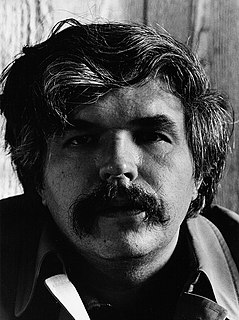A Quote by Thomas Carlyle
Rightly viewed no meanest object is insignificant; all objects are as windows through which the philosophic eye looks into infinitude itself.
Related Quotes
Like the eye which sees everything in front of it and never sees itself, faith is occupied with the Object upon which it rests and pays no attention to itself at all. While we are looking at God, we do not see ourselves - blessed riddance. The man who has struggled to purify himself and has had nothing but repeated failures will experience real relief when he stops tinkering with his soul and looks away to the perfect One.
Any object not interesting in itself may become interesting through becoming associated with an object in which an interest already exists. The two associated objects grow, as it were, together; the interesting portion sheds its quality over the whole; and thus things not interesting in their own right borrow an interest which becomes as real and as strong as that of any natively interesting thing.
Temperance is love surrendering itself wholly to Him who is its object; courage is love bearing all things gladly for the sake of Him who is its object; justice is love serving only Him who is its object, and therefore rightly ruling; prudence is love making wise distinction between what hinders and what helps itself.
Infidelity and faith look both through the perspective glass, but at contrary ends. Infidelity looks through the wrong end of the glass; and, therefore, sees those objects near which are afar off, and makes great things little,-diminishing the greatest spiritual blessings, and removing far from us threatened evils. Faith looks at the right end, and brings the blessings that are far off in time close to our eye, and multiplies God's mercies, which, in a distance, lost their greatness.
Though the eye is small, the soul which sees through it is greater and vaster than all the things which it perceives. In fact, it is so great that it includes all objects, however large or numerous, within itself. For it is not so much that you are within the cosmos as that the cosmos is within you.
Imagine an eye unruled by man-made laws of perspective, an eye unprejudiced by compositional logic, an eye which does not respond to the name of everything but which must know each object encountered in life through an adventure of perception. How many colors are there in a field of grass to the crawling baby unaware of ‘Green?’ How many rainbows can light create for the untutored eye?
There is a kind of grandeur and respect which the meanest and most insignificant part of mankind endeavor to procure in the little circle of their friends and acquaintance. The poorest mechanic, nay, the man who lives upon common alms, gets him his set of admirers, and delights in that superiority which he enjoys over those who are in some respects beneath him. This ambition, which is natural to the soul of man, might, methinks, receive a very happy turn; and, if it were rightly directed, contribute as much to a person's advantage, as it generally does to his uneasiness and disquiet.
Pride looks back upon its past deeds, and calculating with nicety what it has done, it commits itself to rest; whereas humility looks to that which is before, and discovering how much ground remains to be trodden, it is active and vigilant. Having gained one height, pride looks down with complacency on that which is beneath it; humility looks up to a higher and yet higher elevation. The one keeps us on this earth, which is congenial to its nature; the other directs our eye, and tends to lift us up to heaven.






































